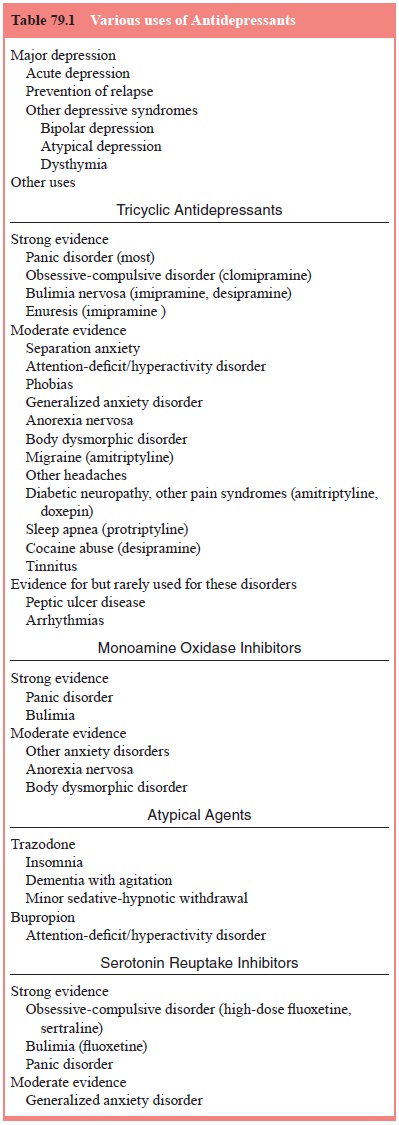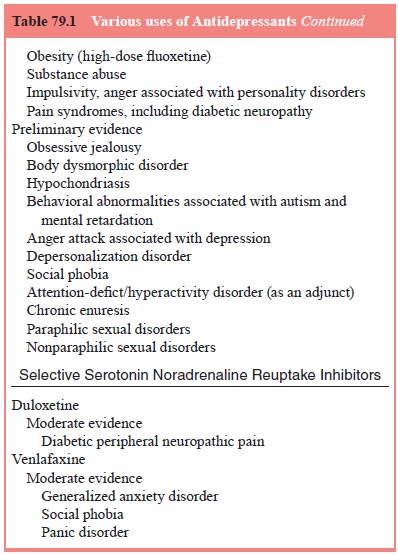Chapter: Essentials of Psychiatry: Antidepressants
Antidepressants: Mechanisms of Actions
Antidepressants
The discovery of antidepressants did more than provide a revolution-ary therapy for depression; it changed the way we view mood dis-orders and, by analogy, the mind itself. It permanently transformed the appraisal of our ability to influence areas of existence previously thought unreachable through physical manipulation. Antidepres-sants are now used to treat a variety of disorders (see Table 79.1).


Mechanisms of Actions
All known antidepressants affect monoamine neurotransmission, and this is believed to be their mechanism of action. As imipramine, iproniazid and related antidepressants shared an ability to augment the monoamine norepinephrine, the early neurochemical theories of depression focused on this neurotransmitter. Later, newer agents were introduced that seemed to exert their primary effect on an-other monoamine, serotonin. Research into these two neurotrans-mitters evolved into the monoamine hypothesis of depression. The monoamine theory of depression suggests, in its simplest form, that depression relates to abnormal levels of monoamines: neurotrans-mitters thought important in the regulation of mood. Antidepres-sants themselves provide the strongest evidence supporting the role of monoamines in mood, as all known antidepressants affect the levels of monoamines in the brain. Other evidence for the monoam-ine hypothesis included the observation that reserpine (which de-pletes norepinephrine and serotonin) frequently causes depression.
Related Topics